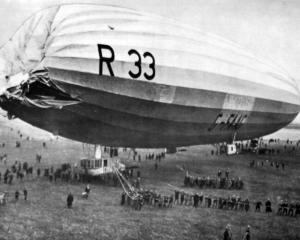It is unknown whether the passengers were saved.
When the Lusitania was about to leave New York, Germany boasted that she would torpedo the liner; but so many threats of a similar kind had been made and not redeemed that the passengers decided to proceed with the vessel, relying, no doubt, on the mammoth steamer's speed to enable her to dodge torpedoes.
For once, however, a German threat has been carried out, and doubtless there will be rejoicing in Berlin, though this will not be so great as if a number of lives had been lost.
Fifty anonymous telegrams were received by wealthy Americans on board the Lusitania, when she was on the point of sailing, warning them that the liner would be torpedoed.
Relatives of the passengers besieged them begging them to abandon the voyage.
The majority, however, departed.
Foreigners round the docks passed the word that death accompanied the Lusitania, and her voyage created almost a panic.
Twenty of the Lusitania's boats and 16 other boats were on the scene after the sinking.
The Lusitania carried 290 first class passengers, 662 second, 361 third, and 665 officers and crew.
Captain Turner has been saved, but nearly all the other officers perished.
Twenty-two of the rescued passengers died.
A hundred and six Americans perished, thinking the ship would float, but she sank in less than 30 minutes.
Scarcely any event in the war has created the same profound impression in London.
The threats made prior to her sailing were lightly dismissed, and even the submarine activity about Kinsale during the last few days did not cause anxiety, the public pinning their faith to the liner's speed.
The first rumours of the disaster were frankly discredited, and official confirmation of the news produced a shock.
Most people were unable to realise that a great disaster had happened.
Slowly the facts were accepted, and the one question asked was: ''how many have been saved?''
• Our Oamaru corespondent telegraphs that the continued absence of a good autumn rain is begetting some anxiety in North Otago.
For over two months there has not been any rain of real value, and the occasional fitful showers have done nothing to moisten the ground.
Though some feed remains, it has gone off very materially, and the outlook is certainly not hopeful.
The most serious trouble is that the ground is so devoid of moisture that farmers cannot sow catch crops to supply winter and early spring feed.
A good rain would afford some relief in that direction. - ODT, 10.5.1915.
• COPIES OF PICTURE AVAILABLE FROM ODT FRONT OFFICE, LOWER STUART ST, OR WWW.OTAGOIMAGES.CO.NZ












